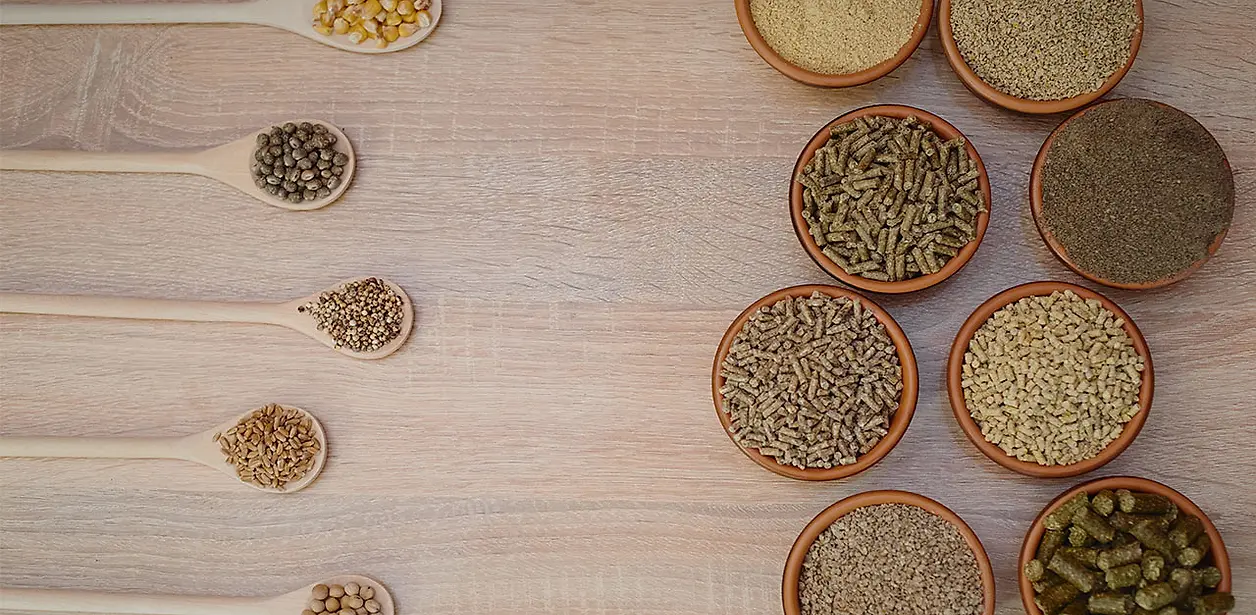ISO 35602 Moisture Content Testing in Fish Meal
The ISO 35602 standard specifies the procedure for determining moisture content in fish meal, which is a crucial component in animal feed production. This test ensures that the moisture levels are within acceptable limits to prevent spoilage and maintain quality standards.
Quality managers and compliance officers rely on accurate moisture content testing as part of their routine processes. For R&D engineers, this service provides essential data for developing new formulations and improving existing products. Procurement teams ensure they receive high-quality raw materials by verifying the test results before finalizing contracts.
The process involves a precise drying method where the fish meal is dried in an oven under controlled conditions until its weight stabilizes. The difference between the original weight and the dried weight provides the moisture content percentage. This service ensures that the moisture levels comply with international standards, including ISO 35602.
The equipment used for this procedure includes an accurate analytical balance and a drying oven capable of maintaining precise temperatures. Compliance to ISO 35602 guarantees reliable results which can be trusted by stakeholders in the food & feed industry. Accurate moisture content testing is essential not only for quality control but also to ensure compliance with international regulations.
The importance of this service cannot be overstated as it affects the nutritional value, shelf life, and overall quality of fish meal products. Ensuring that the moisture levels are within acceptable limits helps prevent spoilage and maintains consistency in product specifications. This is especially critical for producers who export their products to international markets where strict standards must be adhered to.
Compliance with ISO 35602 ensures that your products meet global quality standards, which can significantly enhance trust among customers and suppliers. By consistently meeting these standards, you demonstrate a commitment to excellence in product quality and safety.
The accuracy of the moisture content testing is paramount as even small variations can lead to significant deviations in the nutritional profile and shelf life of fish meal products. This service not only helps maintain consistency but also ensures that your products are competitive in the market by meeting or exceeding international standards.
For R&D teams, this test provides valuable insights into how moisture content affects various aspects of product development such as formulation stability, processing efficiency, and storage conditions. Understanding these factors allows for more informed decisions on ingredient sourcing and process optimization.
The standard also emphasizes the importance of sample preparation which includes uniformity in particle size to ensure accurate measurements. Proper handling during sampling is critical since any contamination or alteration could lead to inaccurate results. Therefore, strict adherence to protocol ensures reliable outcomes.
International acceptance and recognition of ISO standards like 35602 contribute significantly towards establishing a level playing field where businesses operate under consistent criteria worldwide. This fosters confidence among buyers knowing that they are receiving standardized products regardless of geographical location.
International Acceptance and Recognition
- The ISO 35602 standard is widely accepted in countries around the world, particularly those with active food & feed industries. Its adoption ensures uniformity across borders.
- Affiliations with global bodies like Codex Alimentarius further solidify its standing as a benchmark for quality assurance.
- Adherence to this standard enhances credibility among international buyers and sellers alike.
Competitive Advantage and Market Impact
By adhering to ISO 35602, you position yourself ahead of competitors by delivering consistently high-quality products that meet stringent international standards. This not only enhances your reputation but also opens up new markets for expansion.
The ability to demonstrate compliance with globally recognized standards can significantly bolster sales and customer trust, leading to increased market share and profitability. Consumers increasingly prioritize transparency regarding the origin and quality of their food sources; meeting these expectations reassures them about the integrity of purchased products.
Use Cases and Application Examples
One common use case involves agricultural companies sourcing fish meal for animal feed production. Another example includes pet food manufacturers who need accurate moisture content data to ensure consistent product quality.
Retailers often require suppliers to provide test results before placing orders, ensuring that the products meet their specified requirements. Similarly, exporters must comply with importing countries' regulations regarding moisture content limits.





